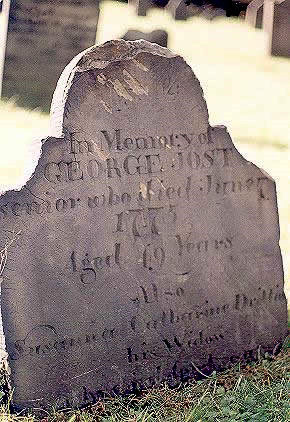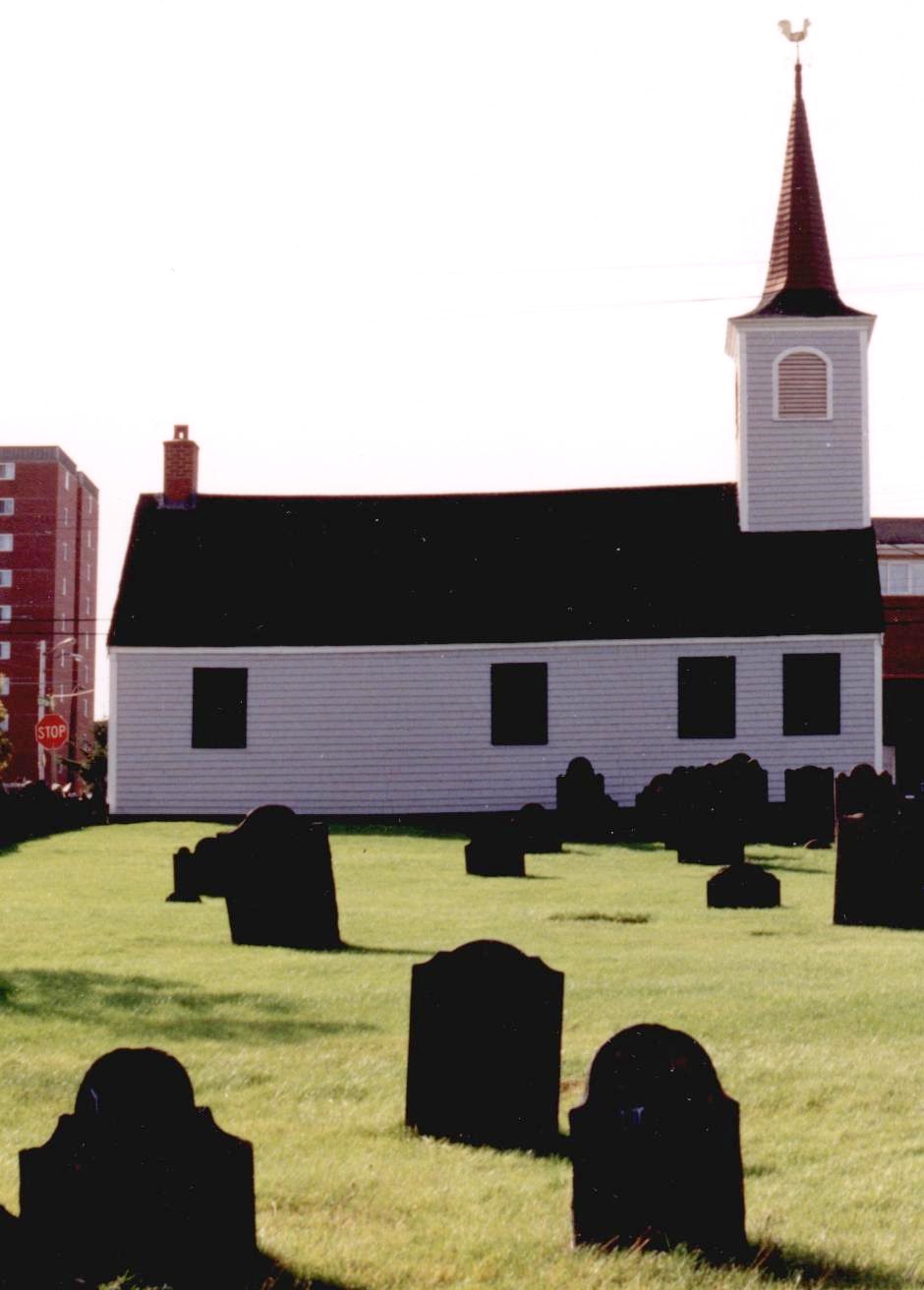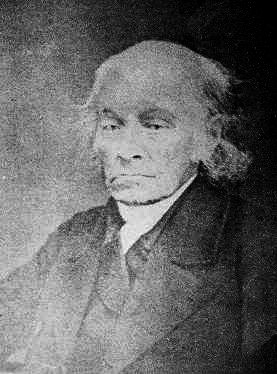Jost Biographies:
Johann
Georg Jost and John Casper Jost

First Generation--
George’s full
name was Johann Georg Jost. It was a practice in Germany that the first given
name was a christening name, and the child would actually go
by the middle name. So it was with George. He and Susanna named
three of their sons John! The Betty’s passenger list states
simply that he was from Strasbourg. The list gives his name as
Jean Georges Jost, the French version of his name, but his own
signature on the indebtedness list was "Johann Georg Jost," showing
that he was a German speaker, and thought of himself as being
ethnically German rather than French.
He was born May 30, 1727,
according to the birth records of St. Aurelians’ Lutheran
church in Strasbourg. This tallies with his age (25) when he
boarded the Betty in May 1752. But it means he was actually
48 years old when he died in 1775, rather than 49, as was recorded
on his gravestone. The birth record tells that his father was
a locksmith--the same occupation George gave when he boarded
the ship.
According to the World Book
Encyclopedia: "Alsace-Lorraine became part of Charlemagne’s
empire in the 700’s. But it fell to Germany when his grandsons
divided his empire. Alsace-Lorraine remained under German rule
until the 1500’s, when France gained control of them by
slow stages. The people fought all efforts to turn them into
Frenchmen. But the French Revolution of 1789 brought a change
of heart. The Alsatian people became so French in spirit that
more than 50,000 moved to France when Germany got their territory
in 1871." In searching Strasbourg’s Lutheran church
records from the early 1700’s, I found that the records
were still kept in German, meaning that George was definitely
a German speaker!
In 1749, Halifax was founded. The British wanted to outweigh the French
Catholic influence in Nova Scotia, and so recruited "Foreign Protestants" from
Europe (Germany, Switzerland, France) to help settle the city of Halifax.
Meanwhile, in Alsace-Lorraine the pressures to become French and Catholic
were increasing. George, probably wanting to remain faithful to the teachings
of Luther, and attracted by the promise of free land in Nova Scotia,
left his home at that time, and joined the "Foreign Protestants" who
were settling in Halifax. So he escaped the French Revolution.
The settlement of "Foreign
Protestants" in Nova Scotia began in 1750, and the last
of them arrived in 1752, totalling about 2500 people. In May
1752, in Rotterdam, Holland, George embarked on a ship, the Betty,
giving his home as Strasbourg,
and his occupation as locksmith, and his age as 25. He was unmarried
at the time. He landed at Halifax, where he remained until May
1753, when the British government resettled the "Foreign
Protestants" in a distant wilderness surrounded by hostile
Indians--the farming settlement came to be known as Lunenburg.
There, the next year, George married Susanna Catherine Morash,
who with her family had left Kleinheubach, Germany in 1751. During
George and Susanna’s time in Lunenburg, the settlers were
ravaged by Indian attacks--several of the settlers were carried
off, and an entire family was scalped.
 George and Susanna’s first son, John Michael
Jost, was baptized in Lunenburg on Sept. 18, 1757. Their daughter
was born the previous year, but escaped being recorded, as
happened often in the early days of record keeping. They returned
to Halifax ca. 1759-1760, where the rest of their children
were born. Whether they returned to Halifax out of fear of
the Indians, or because the employment opportunities were better
for non-farmers, we don’t know. His will states that he
had worked as a blacksmith in Halifax. But in his will he included
150 acres "in the Range of the Five Houses," a peninsula
of Lunenburg. In 1765, he was granted a 150-acre parcel in
Halifax, and on Dec. 5, 1771, George bought a house and lot
in Halifax. He died only four years later, at 49 years of age.
Susannah remarried, to a Mr. Drillis, and had another daughter,
Catherine.
George and Susanna’s first son, John Michael
Jost, was baptized in Lunenburg on Sept. 18, 1757. Their daughter
was born the previous year, but escaped being recorded, as
happened often in the early days of record keeping. They returned
to Halifax ca. 1759-1760, where the rest of their children
were born. Whether they returned to Halifax out of fear of
the Indians, or because the employment opportunities were better
for non-farmers, we don’t know. His will states that he
had worked as a blacksmith in Halifax. But in his will he included
150 acres "in the Range of the Five Houses," a peninsula
of Lunenburg. In 1765, he was granted a 150-acre parcel in
Halifax, and on Dec. 5, 1771, George bought a house and lot
in Halifax. He died only four years later, at 49 years of age.
Susannah remarried, to a Mr. Drillis, and had another daughter,
Catherine.
George and Susanna were
buried together in the cemetery of the Little Dutch Church
in Halifax, where they worshipped with their family. Their
grave can still be seen there.
According to the plaque
on the wall, The Little Dutch Church in Halifax was built in
1755 by the earliest German Lutherans in Halifax, and was the
first Lutheran church in Canada. It is only about 12 by 6 yards
in size! Actually, the settlers found a small, unfinished house,
and drug it to its present location, then finished it there.
The spire was built later, with George’s help, according
to family tradition--being a blacksmith he may have actually
made the rooster weather vane. The schoolmaster who led the
services was a Johann Jorpel [or Törpel]. The church was
taken over by the Anglican Church years ago, and is now a historical
landmark.

Memoirs of John
Casper Jost
This was found in an old
copy book, apparently written by Rev. Cranswick Jost in about
1880. We have two versions of this. One version contains some
of the previous history about George and Susanna Jost, as well
as scriptures and admonitions to the reader. Otherwise they
differ only in wording in a few places. I have used the shorter
version, as copied by Clara Jost Marr.

During their stay upon
earth they are respected by such as love God and when they
cease to live here while their spirits are associated with
the blest in glory, their memory shall be perpetuated on earth
with everlasting profit to the living.
John Casper Jost's father
[George Jost] died when he was ten years old. But what
he had seen and heard of that which was good deeply impressed
him and profitably so. He frequently referred to those
days and believed that his mind was powerfully moved by
the Spirit of God leading him to fearlessly reprove popular
customs of the day which tended to evil.
But notwithstanding
the gracious impressions made upon his youthful mind, it
was not until the Rev. Wm. Black visited Halifax as a messenger
of grace that he became fully convinced of the necessity
of personal salvation.
Mr. Black in those bygone
days frequently preached in the open market place and often
amid showers of stones, but the words spoken were to John
Casper Jost "quick and powerful". He felt, he
fled, he prayed to God, who, in Christ, soon manifested
Himself as his reconciled Father.
He now attended the
ministry of the Word, regardless of all persecution, for
frequently, while going to the place of worship, he was
molested by several young men, some of whom, he has been
heard to say, met a sudden and untimely death.
Mr. Jost attended and
eventually united with the "Methodist Society",
in which important step his wife joined him, for she, too,
had become a partner in the pardoning mercy of God.
After many years of
uninterrupted union with the church, Mrs. Jost was called
to her eternal reward followed three years after by her
partner.
Mr. Jost sustained the
office of class-leader and chapel-steward for many years
and indeed continued in these posts of duty until he exchanged
life here for immortality. His faith was made manifest
by his works.
If Christian sobriety,
if a meek and quiet spirit demonstrated by real piety,
then we may favorably judge of Mr. Jost's religious character,
for these gracious truths were made manifest in him.
From conscientious convictions
he was a Wesleyan Methodist but at the same time he ever
cherished the most kindly feelings towards any who loved
the Lord Jesus Christ. On the means of Grace he set the
highest value, regarding them as being divinely appointed
to promote Christian character and a personal experience
of God in the soul. Consequently for many years his presence
in Argyle St. Church in Halifax was as regular as the services
observed in that edifice, hallowed by a thousand association.
He departed this life
as he had lived and died.
As usual he conducted
family prayers in the evening and although he had been
previously indisposed he appeared quite comfortable and
he conversed freely and cheerfully on retiring to rest.
Early the following morning his daughter, Mary, on approaching
his bedside thought that he slept--not a feature was distorted.
His position and his countenance all indicated that he
slept soundly. But it was the sleep of death.
Most truly without a
parting groan "he had the welcome word received".
Thus in the eighty-sixth year and after more than fifty
years connection with the church this man of God finished
his course.

The following is an obituary
notice of John Casper Jost, which appeared in the Nova Scotian,
a Halifax paper, June 13, 1850.
"Died
on Thursday morning, June 12, at an advanced age of 86 years,
John Casper Jost, a native of this city and one of its oldest
inhabitants. His death was as his life, calm, quiet and unobtrusive,
claiming no attention except that which he had sought and
no doubt obtained--that when the energy of tired nature failed
and 'the weary wheels of life stood still at last' his freed
spirit should be received in the bosom of his Father and
his God. He retired at the usual hour and was found dead
in his bed in the morning. Happy were it for the world if
all passed through life as harmlessly and blamelessly as
he."

Sources:
Jim Drysdale
Writings of Clara Jost Marr
Writings of Dr. Arthur Cranswick Jost
The "Foreign Protestants" and the Settlement of Nova Scotia,
by Winthrop Bell, 1961
Records of St. Aurelian's Lutheran church, Strasbourg

Links:
Allan Jost's gedcom
of our Jost family:
http://jostfamily.tk/
Halifax County, Nova
Scotia GenWeb Project:
http://www.rootsweb.com/~nshalifa/
Guysborough County,
Nova Scotia GenWeb Project:
http://freepages.genealogy.rootsweb.com/~guys/index.html
Lunenburg County, Nova
Scotia GenWeb Project:
http://www.rootsweb.com/~canns/lunenburg/shiplists.html
Lunenburg First Families
http://www.seawhy.com/fifamndx.html
http://www.seawhy.com/ffjost.html
Antecdotal Histories
of Life in Lunenburg County, Nova Scotia, by Nancy Shaver:
http://www.flora.org/nancy/lunenburg/


March 1, 2013
Polli Turner